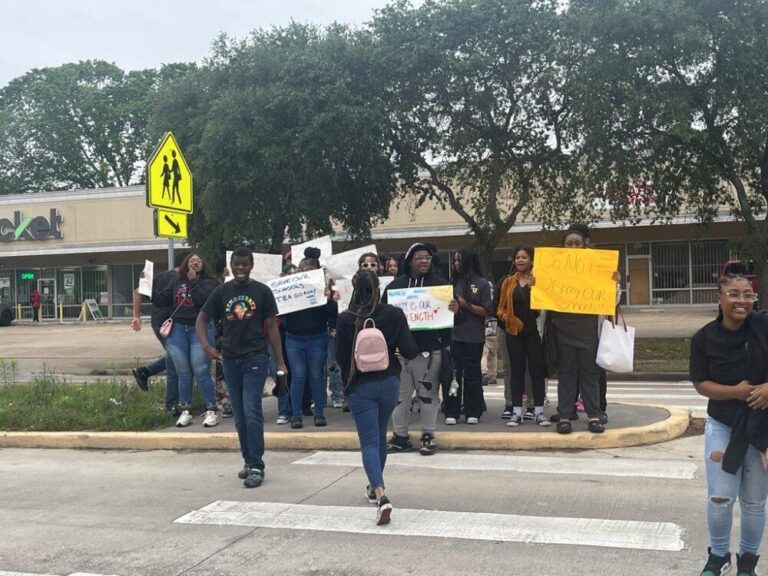Houston ISD Rejects Student Sick-Out Protest Targeting Superintendent Mike Miles
The Houston Independent School District (HISD) has publicly condemned the planned student sick-out protest aimed at Superintendent Mike Miles, which has been circulating on social media platforms. The protest calls for students to skip school in objection to Miles’ administrative decisions and policies. HISD officials have urged both students and parents to prioritize uninterrupted education and to avoid actions that could hinder academic progress or disrupt school operations. This incident adds to the ongoing friction between district leadership and various community groups.
In addressing the situation, HISD outlined several important considerations for all stakeholders:
- Prioritizing education: Consistent school attendance is vital for student achievement and growth.
- Engaging through proper channels: The district encourages concerns to be voiced via official forums, such as school board meetings and designated communication platforms.
- Adhering to attendance policies: These rules exist to protect the rights and safety of every student within the district.
HISD reiterated that while community dialogue is welcomed, disruptions like absenteeism are counterproductive and will not be tolerated.
Consequences of the Sick-Out on HISD’s Educational Environment and School Operations
The student-organized sick-out protesting Superintendent Miles’ leadership caused significant interruptions across Houston ISD schools. Numerous classrooms experienced cancellations or fragmented lessons, compelling educators to rapidly modify their teaching plans. Students who participated missed critical instructional time, raising concerns among administrators about potential setbacks in closing pandemic-induced learning gaps.
Operationally, the district faced challenges including elevated absenteeism among both students and staff, complicating attendance management and resource deployment. Additional staff were assigned to manage parent communications and uphold safety protocols amid reduced on-campus presence. Notable operational impacts included:
- Surge in demand for substitute teachers
- Delays in meal service and student transportation
- Increased difficulty in supervising students and ensuring campus security
- Cancellation or postponement of extracurricular programs and school events
| Metric | Average Before Sick-Out | During Sick-Out | Difference |
|---|---|---|---|
| Student Attendance | 93% | 67% | -26% |
| Teacher Attendance | 95% | 84% | -11% |
| Substitute Teacher Requests | 10 daily | 25 on protest day | +150% |
| Participation in Extracurricular Activities | 80% | 38% | -52% |
Community and Parental Perspectives on the HISD Student Sick-Out Amid Leadership Disputes
The call for a student sick-out has elicited mixed reactions from parents and community members within Houston ISD. While some express frustration over the potential academic setbacks caused by absenteeism, others emphasize the importance of students having a platform to voice their concerns. Several parents advocate for constructive communication, urging both district officials and protest organizers to focus on students’ educational welfare rather than political disagreements.
- Academic concerns: Many parents fear the protest will cause students to lag behind in their studies.
- Demand for transparency: Calls for clearer explanations from HISD regarding Superintendent Miles’ policies have intensified.
- Support for peaceful expression: Some community members stress the value of allowing students to peacefully advocate for change.
| Group | Viewpoint | Recommended Approach |
|---|---|---|
| Parent Organizations | Concerned about educational disruption | Organize dialogue sessions |
| Student Councils | Support protest rationale | Promote peaceful advocacy |
| Educational Nonprofits | Neutral but cautious | Facilitate mediation efforts |
District leaders have reiterated their opposition to the sick-out, emphasizing their dedication to a safe and effective learning environment. Families are encouraged to keep students engaged in school while the district works to address concerns through formal communication channels. The community remains divided as this issue unfolds in one of Texas’ largest school systems.
Strategies for Effective Communication Among HISD Students, Parents, and Administration
Building a culture of open and respectful communication is essential for resolving conflicts and fostering community trust. Houston ISD advocates for regular, inclusive forums where students, parents, and district officials can engage in meaningful dialogue. Town halls, moderated panels, and feedback sessions provide platforms to address concerns proactively and collaboratively.
To ensure discussions remain constructive, participants should adhere to these principles:
- Present specific concerns with clear examples rather than broad generalizations
- Focus on shared objectives to bridge divides and avoid polarization
- Work together to develop solutions that prioritize student success and well-being
- Use official district communication channels for follow-up and ongoing dialogue
| Stakeholder | Recommended Action | Anticipated Benefit |
|---|---|---|
| Students | Participate in forums and share perspectives respectfully | Greater empowerment and clarity on district policies |
| Parents | Engage constructively and support educational priorities | Enhanced community cohesion and trust |
| HISD Leadership | Offer transparent updates and responsive communication | Improved credibility and stronger family relationships |
Final Thoughts on HISD’s Handling of the Student Protest
Houston Independent School District’s decisive stance against the proposed student sick-out highlights its commitment to preserving a stable and productive educational environment. As discussions around Superintendent Mike Miles’ leadership continue, the district stresses the value of respectful dialogue and adherence to established policies. The situation remains dynamic, with community members closely monitoring how HISD manages this complex challenge in one of the nation’s largest school districts.

